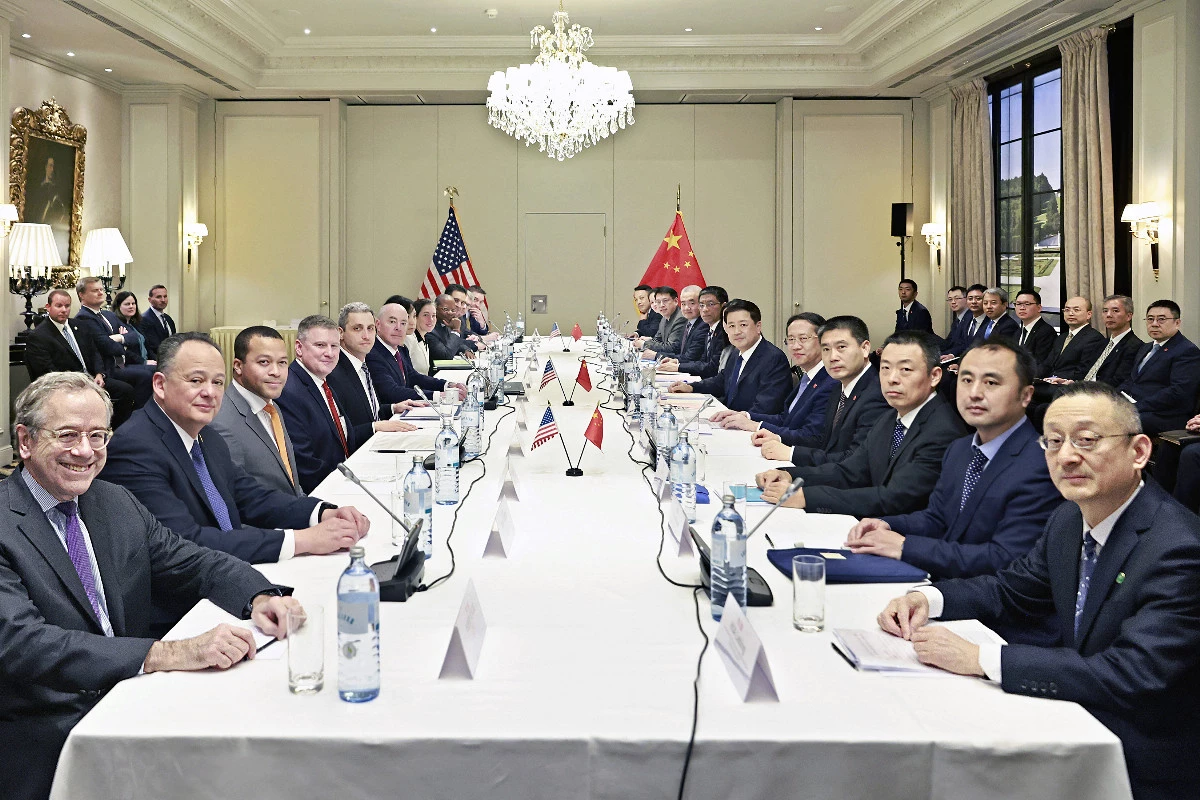In the readout released by the Chinese side, Wang urged the US side to stop harassing and interrogating Chinese students for no reason, take concrete and effective measures to ensure the safety of Chinese diplomatic and consular missions and personnel in the US, and lift visa restrictions on relevant Chinese institutions and personnel.
The readout released by US Department of Homeland Security did not mention China's concerns, instead placing the emphasis on "advancing cooperation in the fight against the scourge of fentanyl, its precursor chemicals, and associated equipment."
In the post-meeting release from the Chinese side, Wang urged the US to correct the mistake of listing China as a "major drug source country."
The Chinese minister said he hopes that the two sides will uphold the principles of mutual respect, peaceful coexistence and win-win cooperation, respect each other's core interests and major concerns, and remove obstacles to bilateral drug control and law enforcement cooperation and people-to-people exchanges.
"A series of actions by the US side against Chinese personnel are clearly setting up obstacles to drug control cooperation. China, on the other hand, looks at the possibility of cooperation between the two departments in the judicial and other fields from a broader perspective," said Lü Xiang, a research fellow at the Chinese Academy of Social Sciences.
According to media reports, since November 2023, multiple Chinese students were subjected to lengthy interrogations, and their cellphones, computers and other electronic devices were inspected without just cause when entering the US. Some of them saw their visas revoked and were given five-year bans from entering the US.
The Chinese government has expressed strong opposition to the US several times over these incidents. Chinese Foreign Ministry spokesperson Wang Wenbin in January slammed the US move as "a clear case of selective, discriminatory and politically motivated law enforcement," which overstretched the concept of national security, and poisoned the atmosphere of China-US people-to-people exchanges.
From the US Department of Homeland Security's statement, it is likely that the US side did not listen to the concerns expressed by the Chinese side, Lü said.
If the US needs China's cooperation to solve its fentanyl problem, it needs to inform the Chinese side of its situation first, such as the drug circulation, the domestic law enforcement system against drug abuse, and the prevention system, if they have one, the expert said, adding that "over-emphasizing precursors shifts the blame to others, while evading its own responsibilities."
The US has five percent of the world's population, but consumes 80 percent of the world's opioids. Yet the US still has not permanently scheduled fentanyl-related substances as a class. There are also drug injection sites in many parts of the country, and even Hunter Biden, the son of President Joe Biden, has tested positive for drugs.
China does not want to see the US become "a major drug-abuse country," said Lü, "in such a chaotic situation within the US, it is very unfair, unreasonable and impolite to ask China to take the blame and responsibility."
The latest Wang-Mayorkas meeting came on the heels of a meeting between Chinese Foreign Minister Wang Yi and US Secretary of State Antony Blinken on the sidelines of the Munich Security Conference on Friday. Experts viewed the continuation of high-level exchanges as a demonstration of shared will to stabilize the relationship and offset uncertainties ahead of the US presidential election.
China is looking to enhance people-to-people exchanges as the cornerstone of ensuring the stability of bilateral ties, while the US is being short-sighted in asking, or even forcing Beijing to cooperate with it to solve its domestic problems, according to Li Haidong, a professor at the China Foreign Affairs University.
The US often asks other countries to cooperate with its needs, while others' concerns are usually ignored unless there are special interests for Washington, Li said.
In China-US relations, both sides have their own priorities and concerns, which require positive responses from the other side to bring about a real stable relationship, the expert said.

